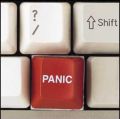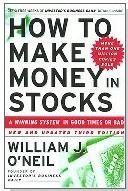YES, WE are in a market downturn and it's depressing to see Mr Market's valuations of our stock portfolios (and our own valuation of our stockpicking abilities) going down.
There is bad news all round with seemingly no hope of recovery in the next five years - but things are not all bad.
No, this is not an article encouraging short-selling (I think you are an idiot to short-sell the Singapore market at current levels) nor is it meant to be chicken soup for the investor's soul because if one just sips it without acting on it, it's simply no use --- conviction is worthless unless it is converted into conduct.
Here are my views:
(1) You can't have a market rally without a market downturn. Translating that into something closer to our hearts, you can't have big profits without tolerating substantial drawdowns. Why does this always work? For one, the valuation goes from overvalued to undervalued, and valuations always regress to the mean.
For another, in downturns the stock scrip moves from weak holders (margin, contra, institutions with investor mandate that could face redemptions etc) to the strong holders (pension funds, investors managing with no heavy liability considerations, wealthy people, other cash-rich fund managers) and sets the stage for a compressed spring effect.

(2) Certain things are controllable and one should not be beset by a sense of panic and helplessness.
Aren't there some stocks that you always wanted to buy because they had all the elements of a Buffett-type long-term stock with economic moats and honest management and high returns on equity and all that, except that their valuations were too expensive?
A market slump presents such an opportunity because the baby gets thrown out with the bathwater.
(3) The irony is that one doesn't have to worry too much about the price-fundamentals linkage in down markets. In bull markets, one should take note if the price is weak despite apparently strong fundamentals; it might signal something wrong.
In down markets, more often than not it's due to a rush for liquidity and institutional risk aversion. Of course, this conviction must be supported by an understanding of market dynamics and evidence that the company is not going to be hit, especially in the long-term, by the declining real economy.
(4) It's an opportunity to swap the weaker companies in one's portfolio for stronger ones. If you bought Ipco at 10 cents in July 07 when Celestial Nutrifoods was at $1.50, you have the option of swapping one for the other now at no relative loss since they have both halved. Isn't it great that you can wash away your stockpicking mistakes in a down market?
(5) Market downturns offer validation of a stock's underlying potential – it’s like stress-testing. It offers you a chance to see the price action of the stocks you hold/are interested in under a market downturn scenario. Often it offers many insights on the resilience of price supports, trading volume in weak markets (indicative of institutional interest), and of course fundamental earnings performance in a weak real economy. It’s very valuable information that either strengthens your conviction or removes it.
(6) For the investor, it allows him to practise value averaging effectively. If one is certain of the (non-cyclical) fundamentals of the companies he holds, market downturns offer the best justification for averaging down because often the stock's price decline has little to do with its core operating strength.
Just as pyramiding in a bull market allows one to build on gains exponentially, averaging down in bear markets can work (big caveat: know the fundamentals with conviction).

(7) There are always certain sectors that will do better, or even flourish, stock market-wise. Check out William O'Neill's book "How To Make Money In Stocks" for a listing of the bull sectors even through the stagflation years of the 1970s.
(8) If not price-wise, there are always certain sectors that will do better operations-wise while their stocks perform in a lack-lustre manner on the moribund stock market. So one will be able to get emerging champions at a good price in a market downturn.
In the 1970s, an example of a new bull sector that would come to the fore and enjoy a secular run over the next two decades was the electronics sector - specifically, computers. The important thing is to stay alert by tracking the news so that you can spot these sectors.
So there you have 8 reasons to huat from a market downturn. Of course, if in doubt, remain in cash. Risk-taking is a function of one's stomach, one's conviction, one's liability considerations and one's time horizon. There is no one size that fits all.
Adapted from DanielXX’s blog with permission
Recent NextInsight article by DanielXX: SILVERLAKE AXIS: Software solutions for Asian banks


